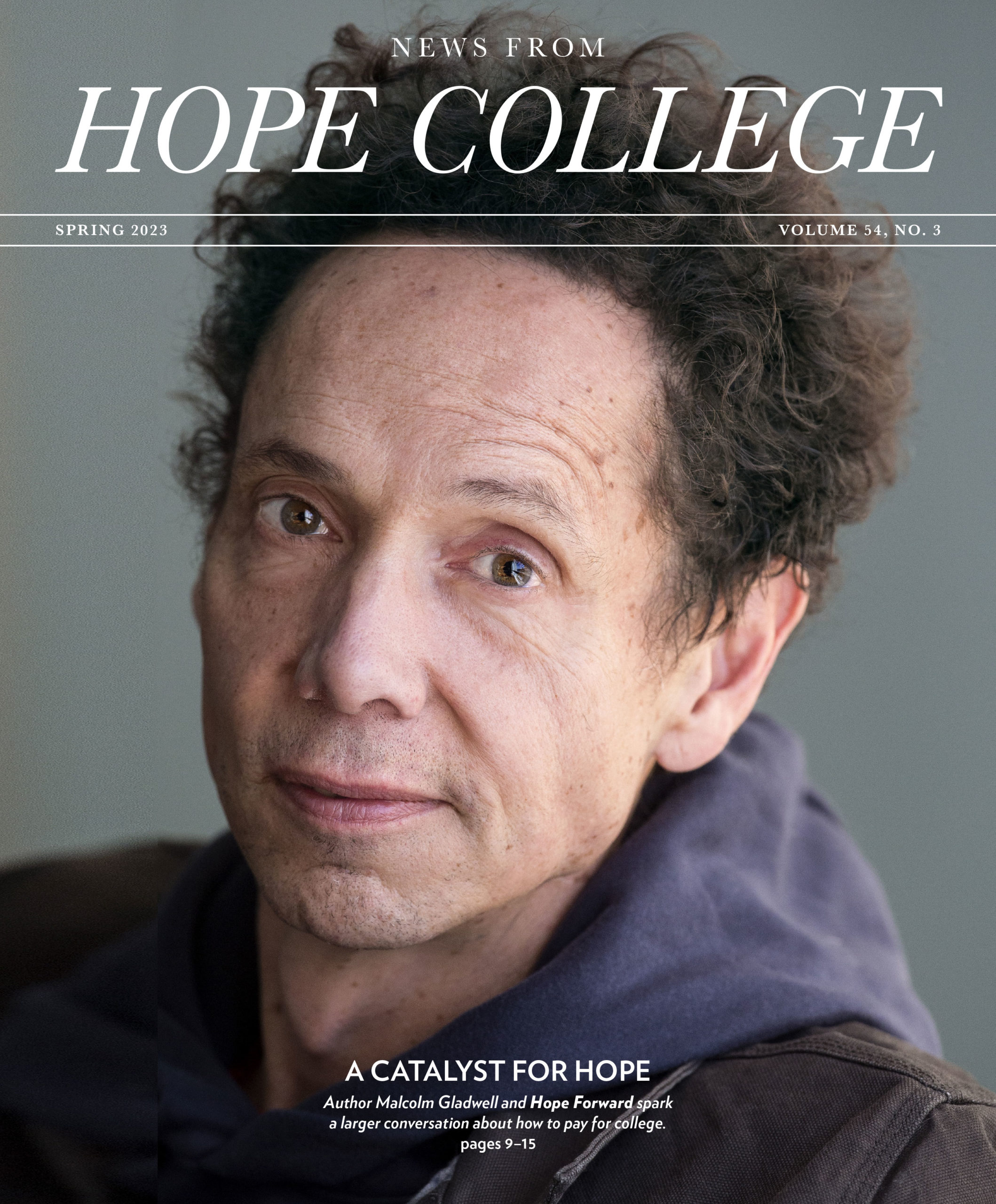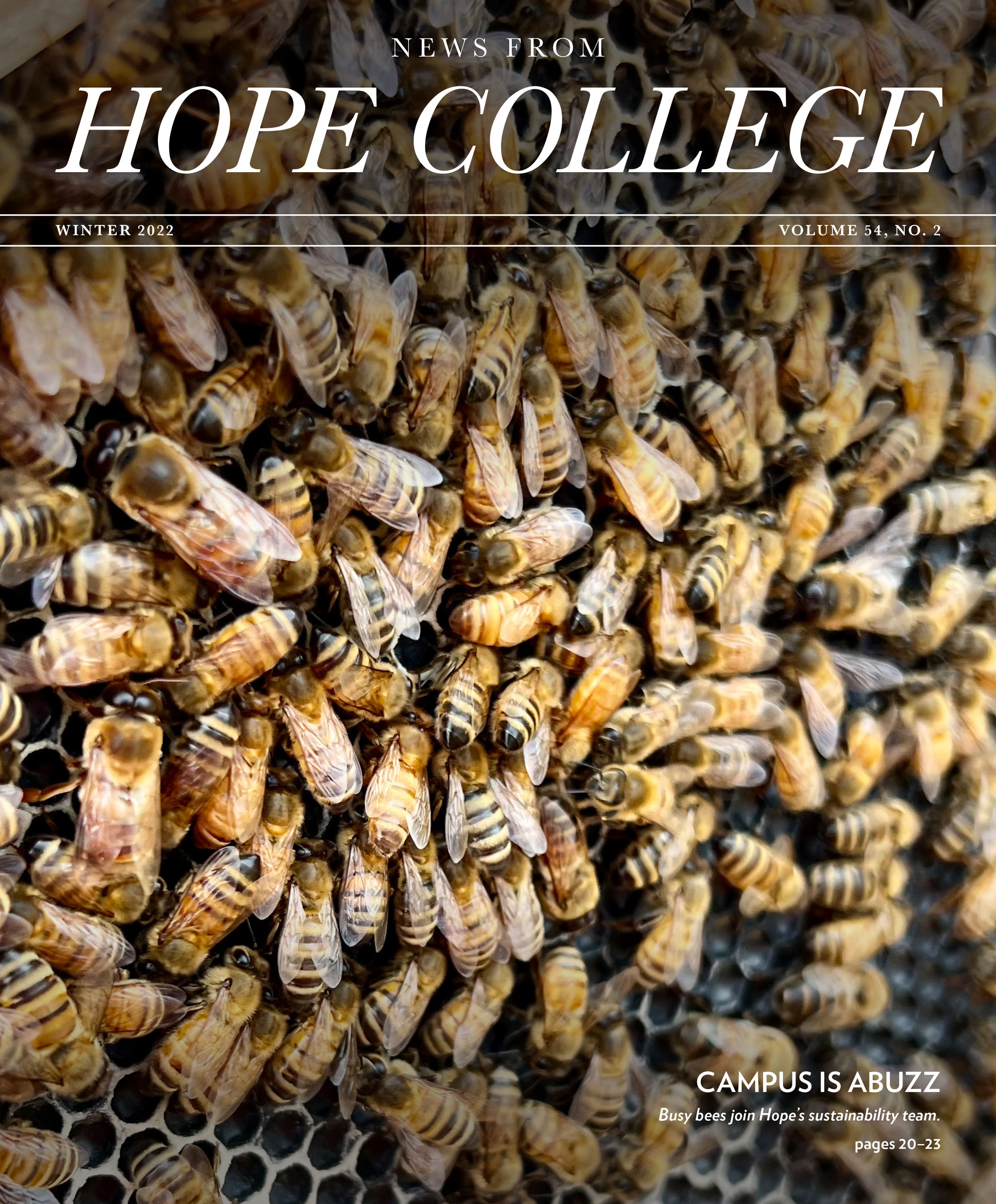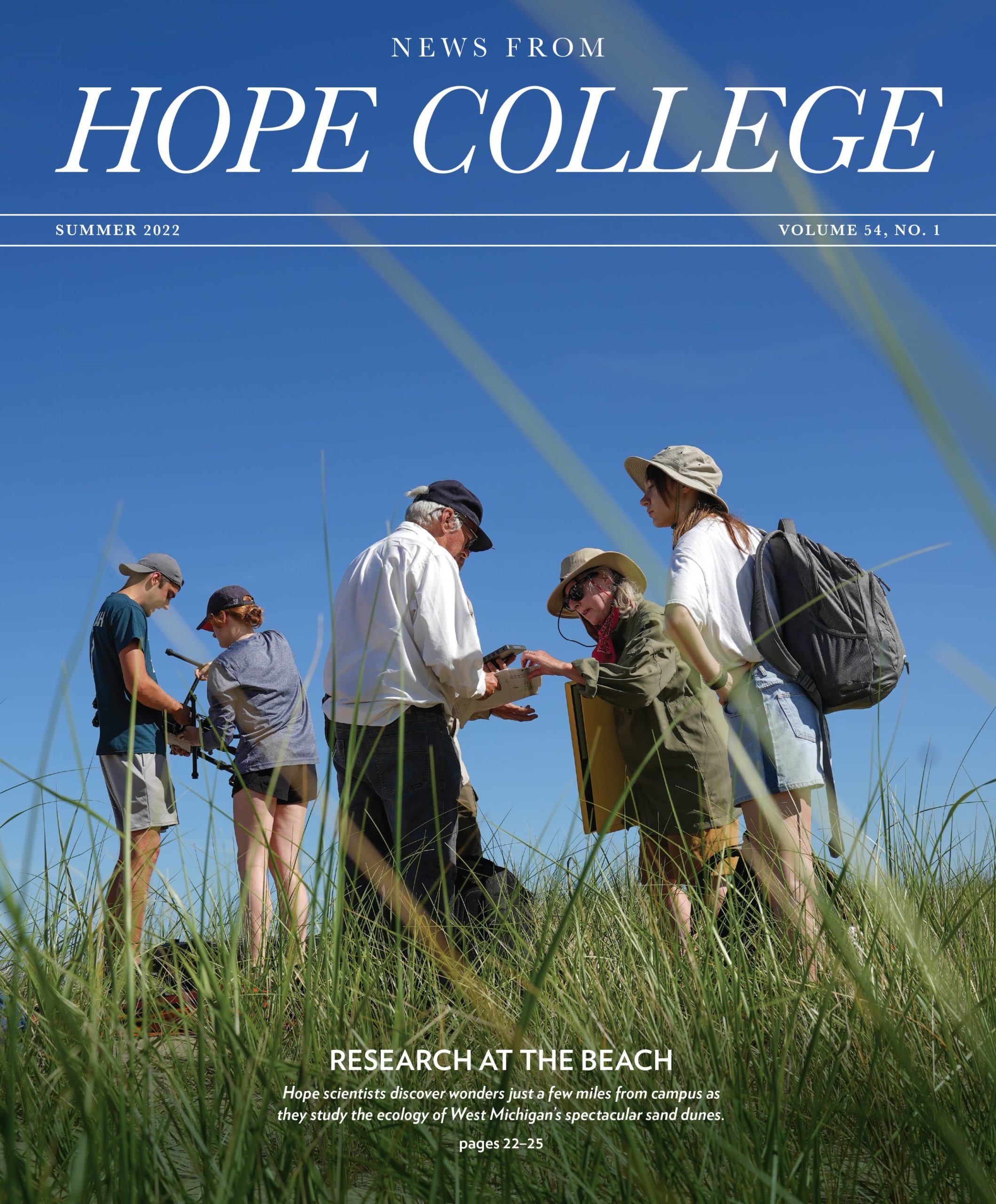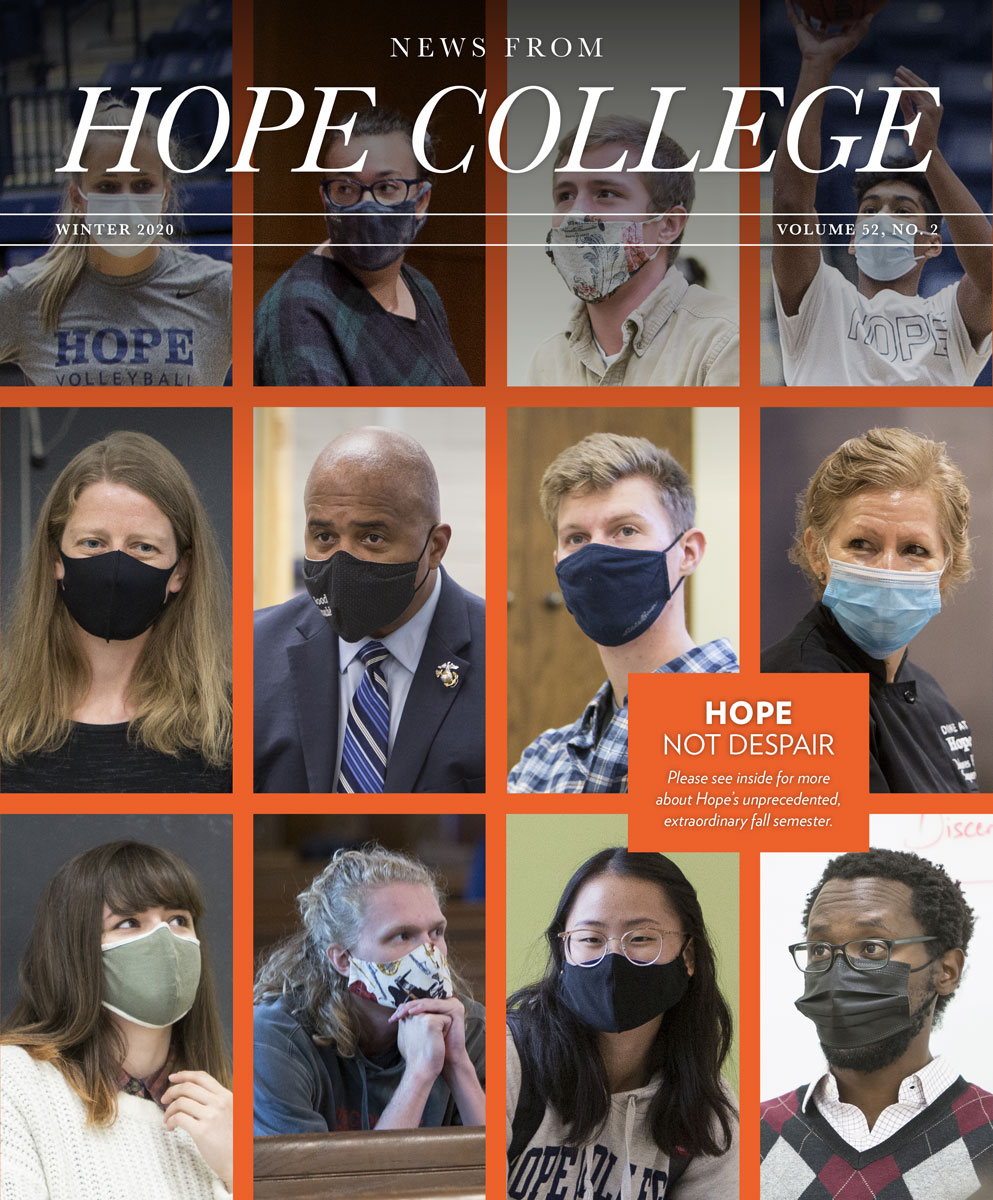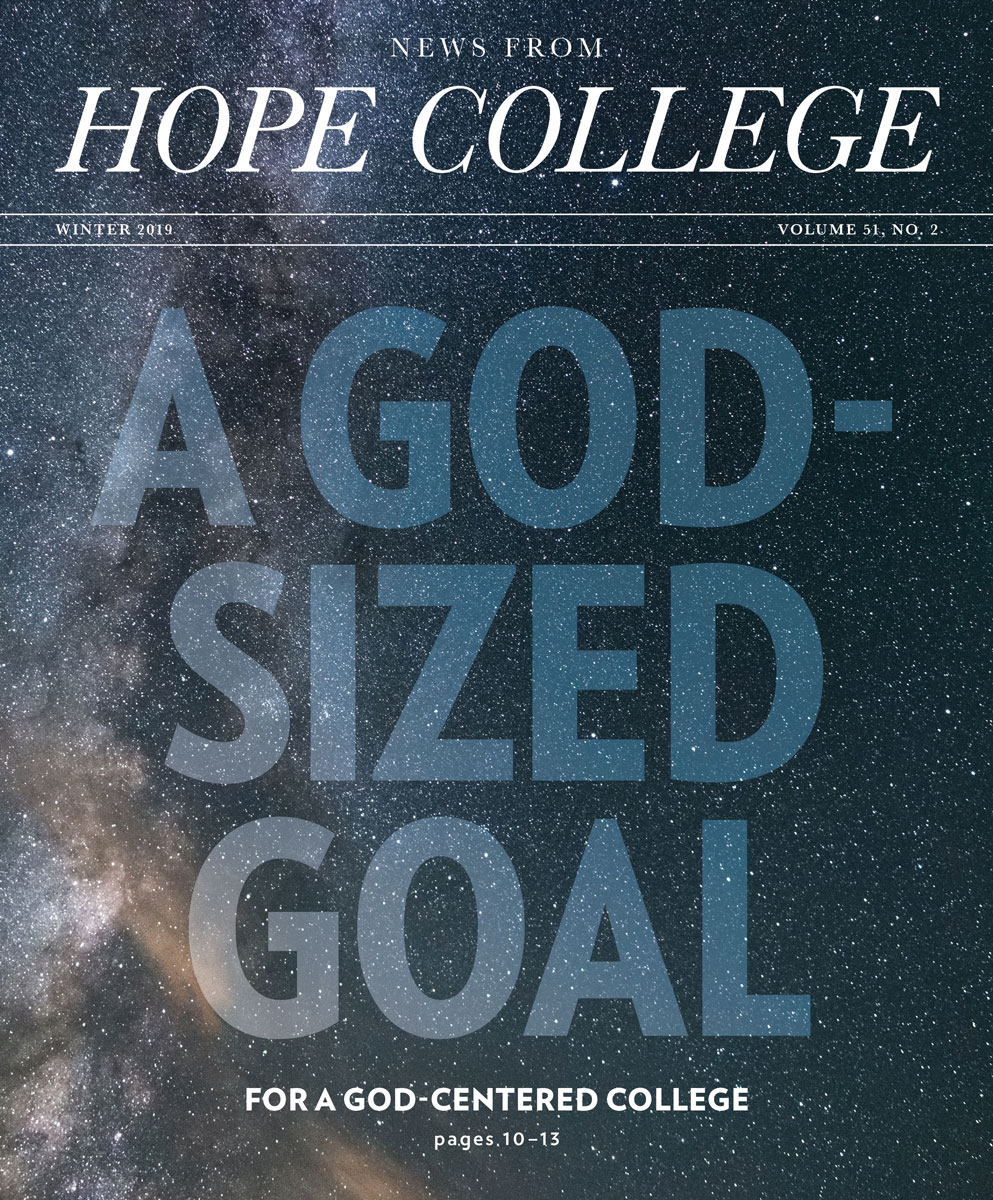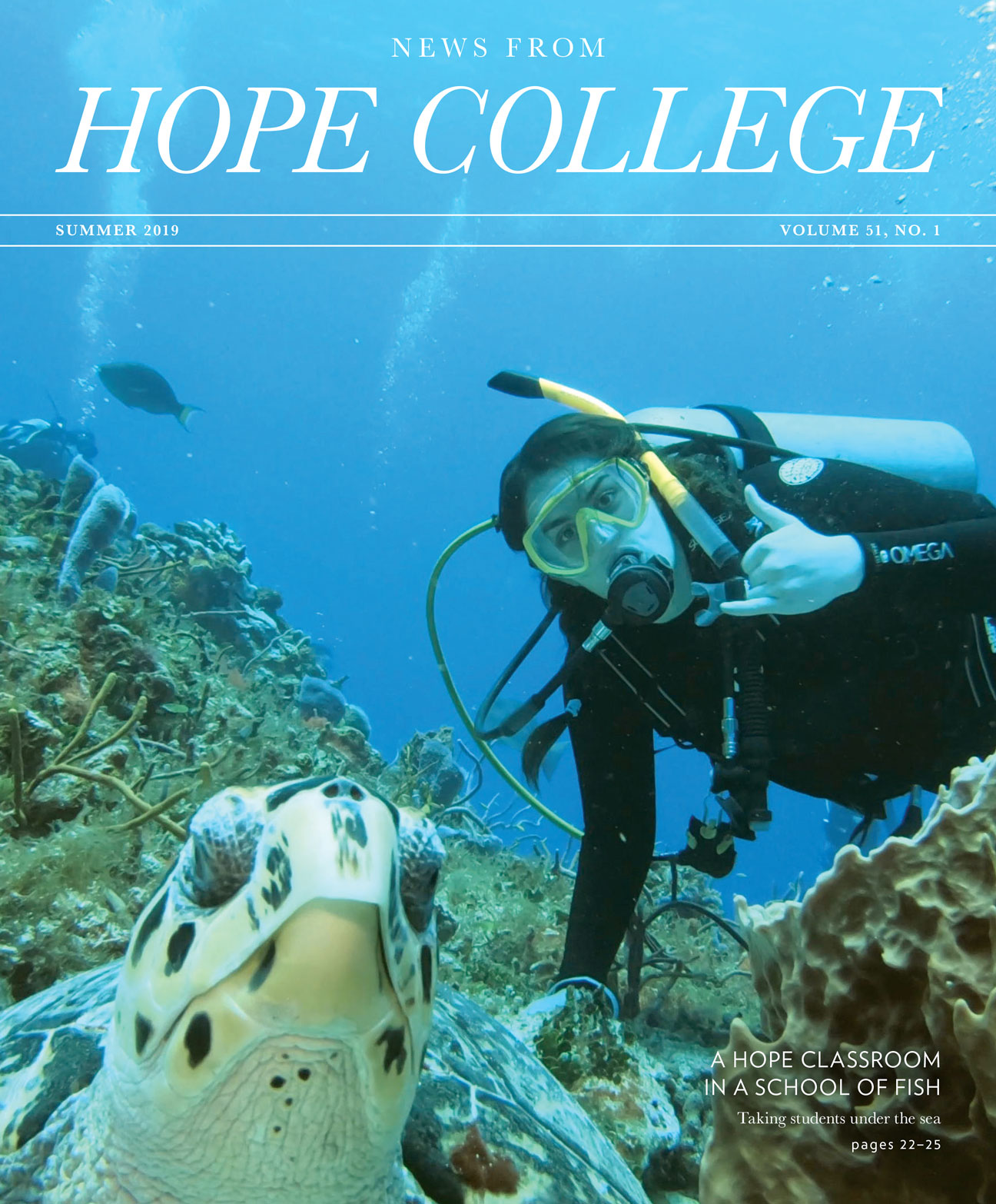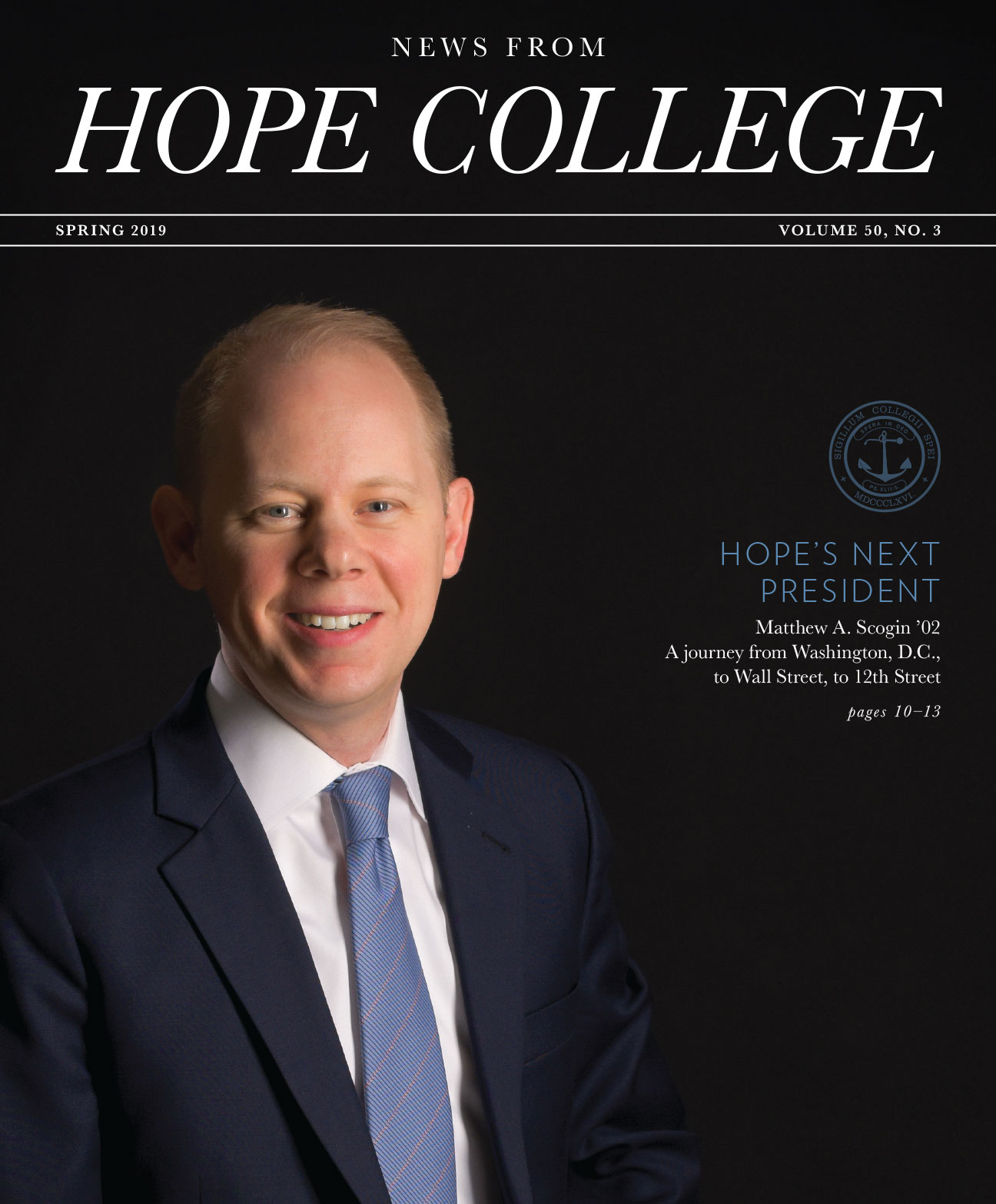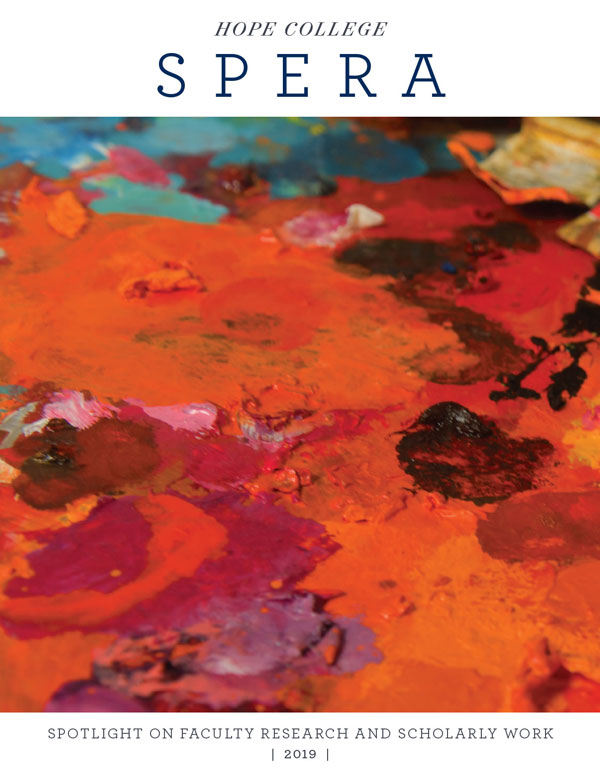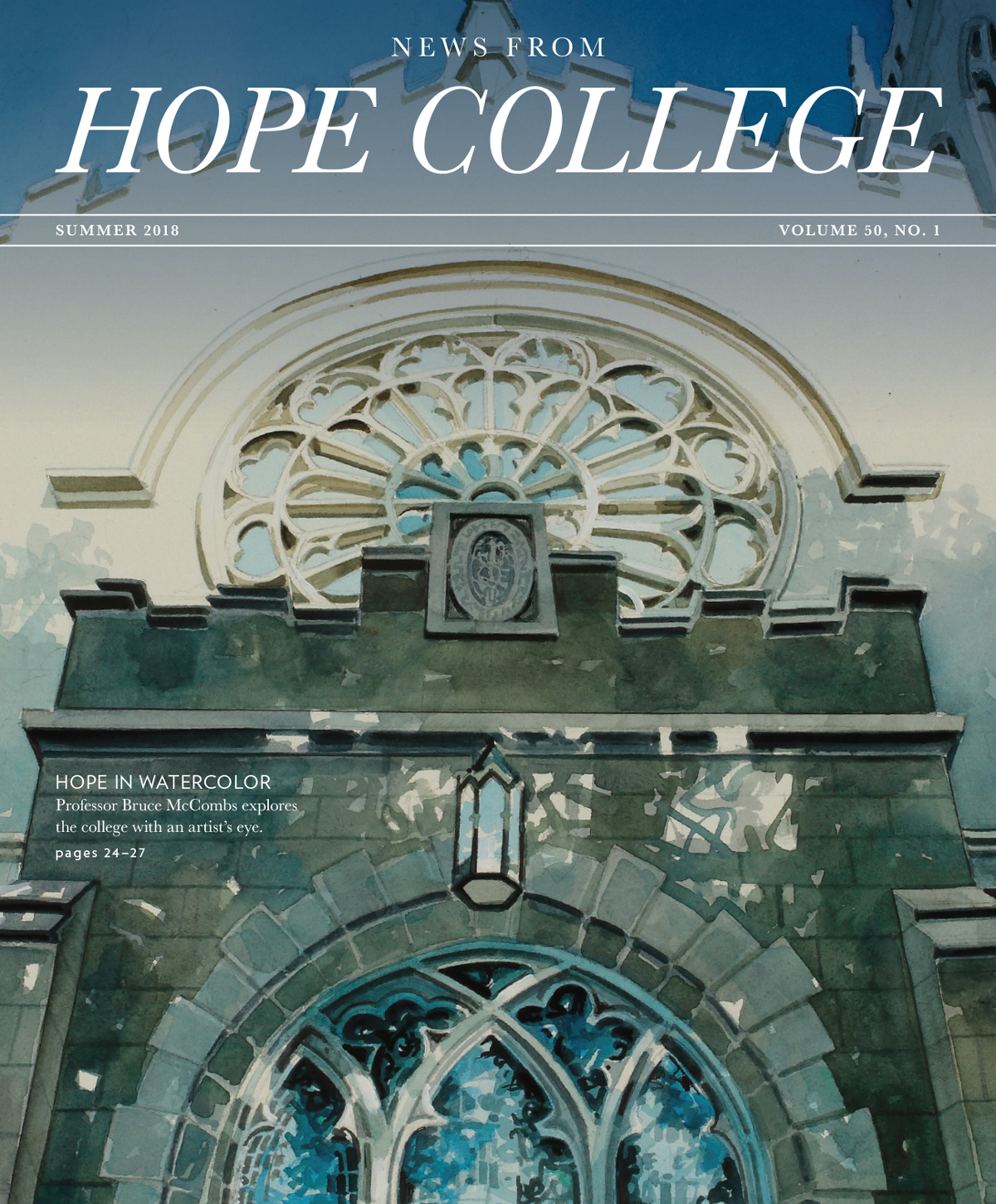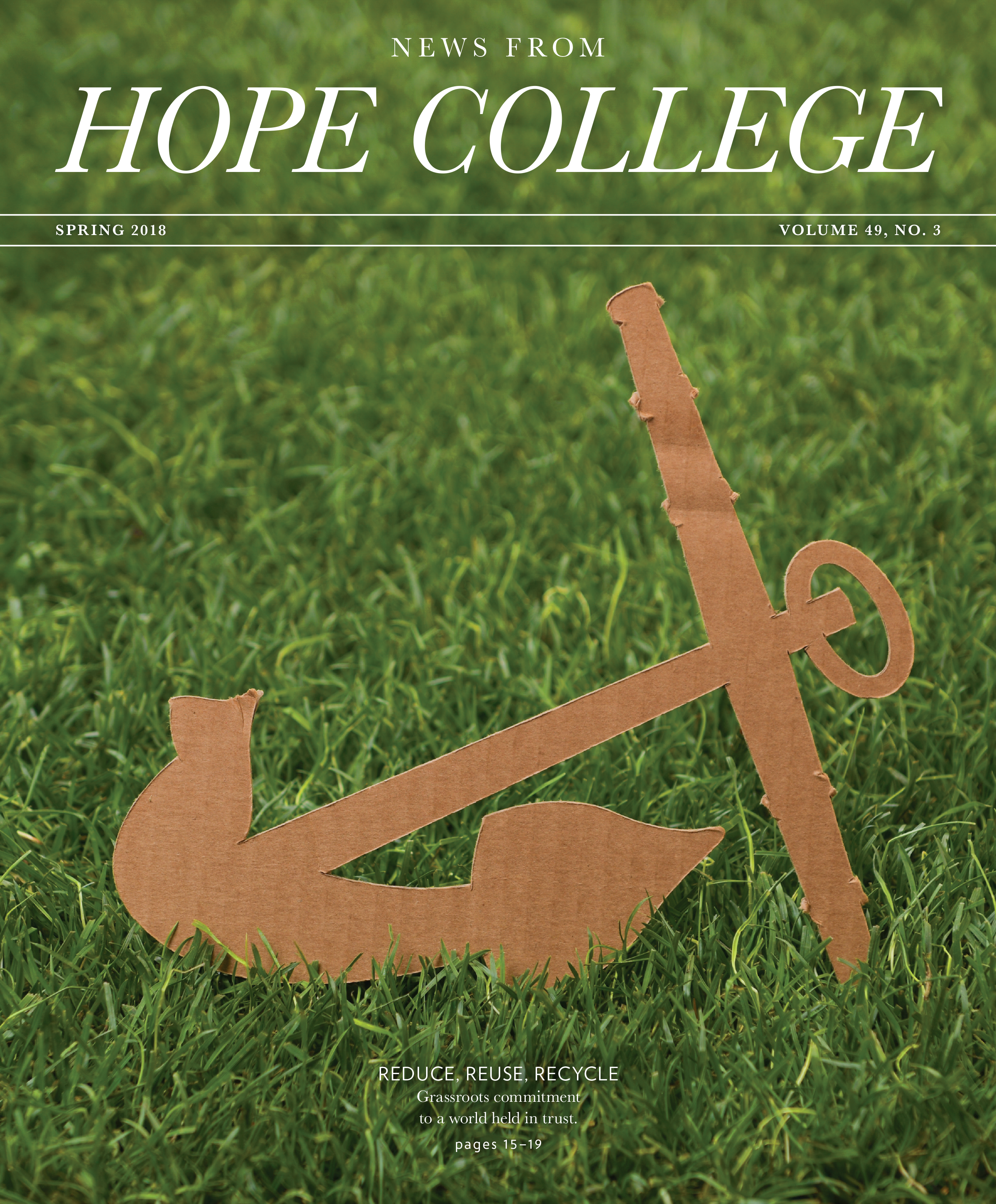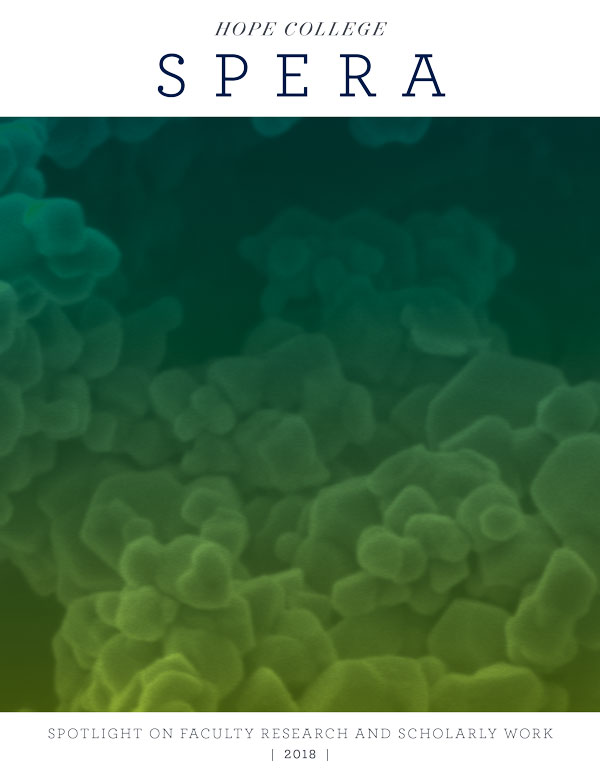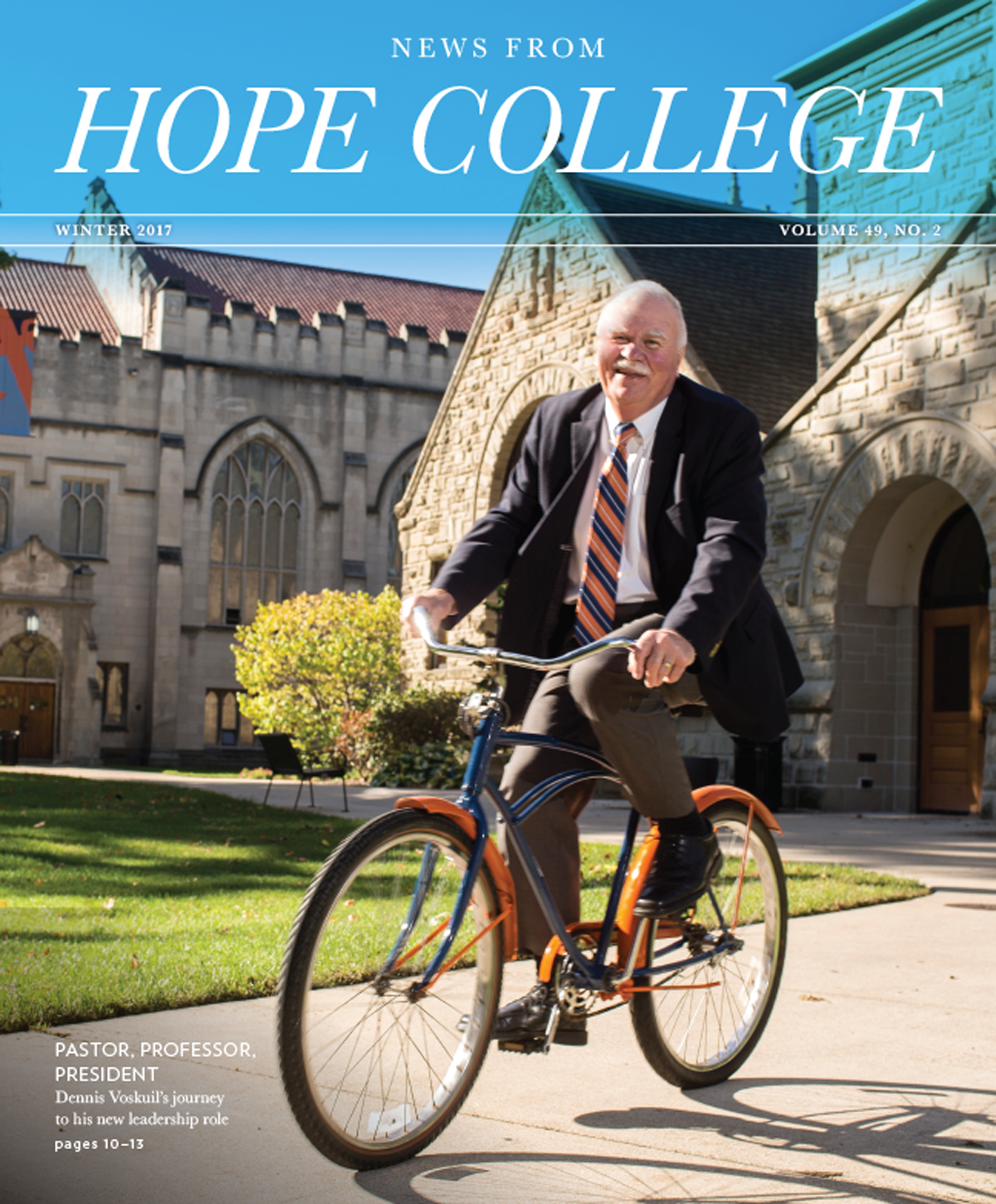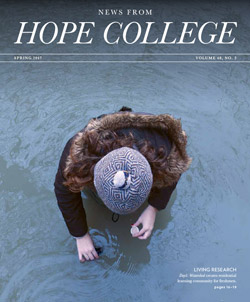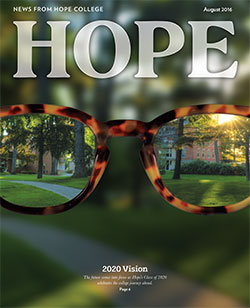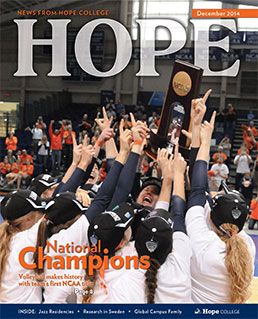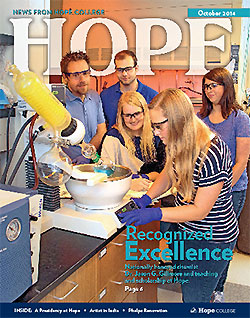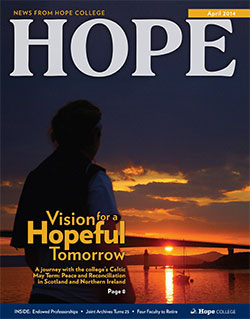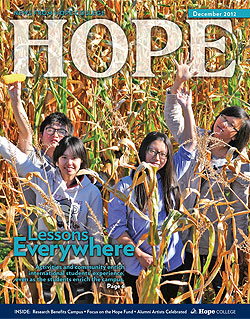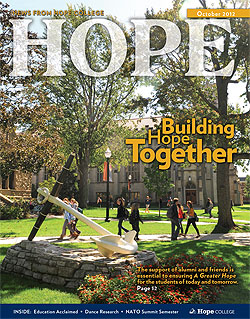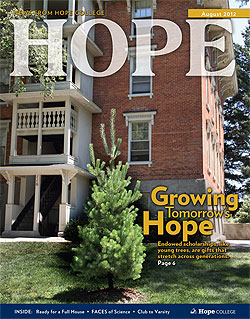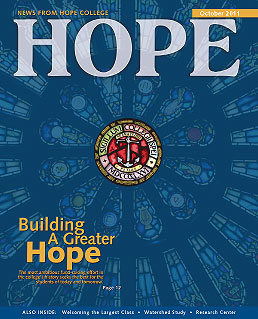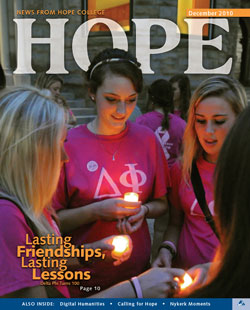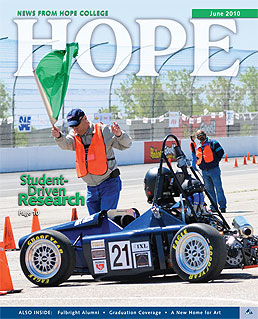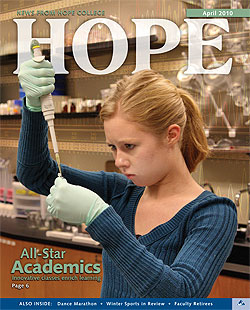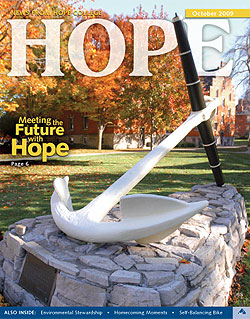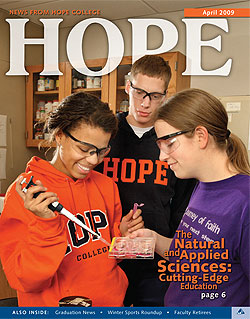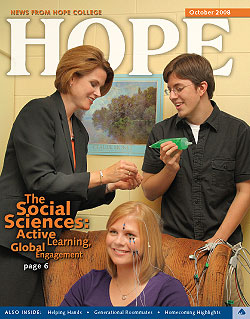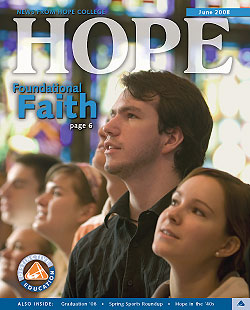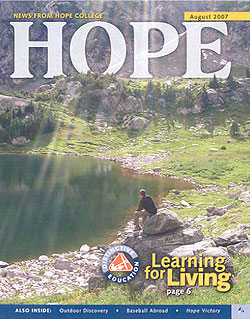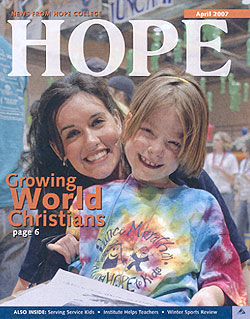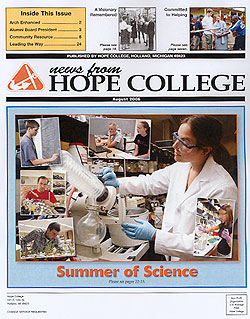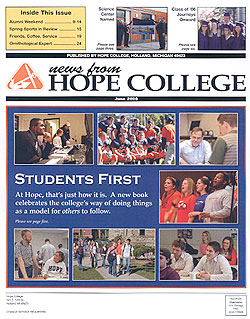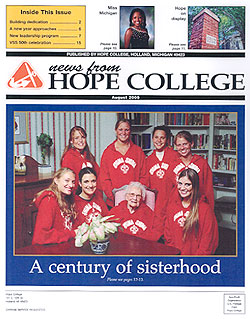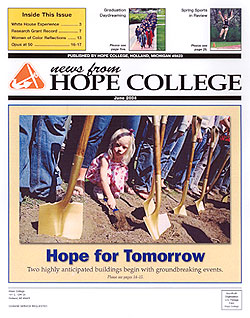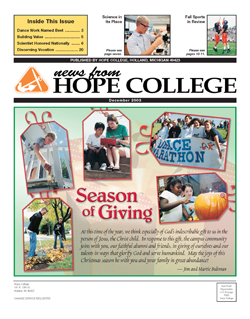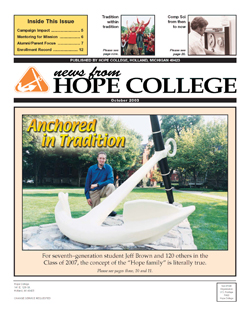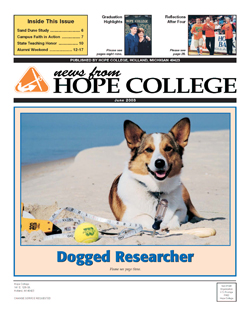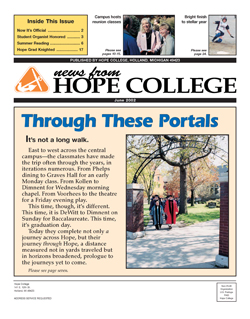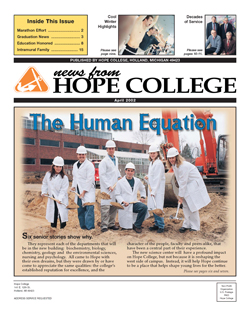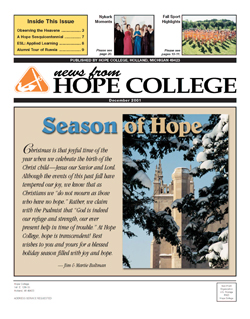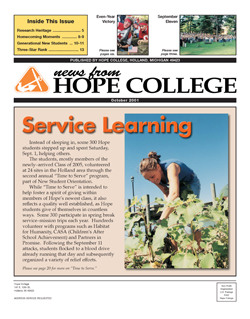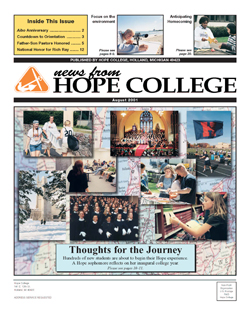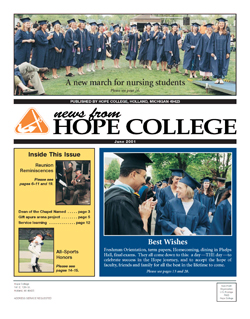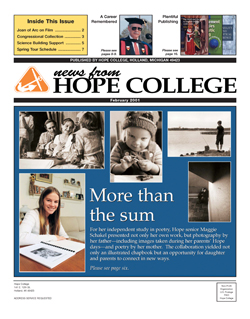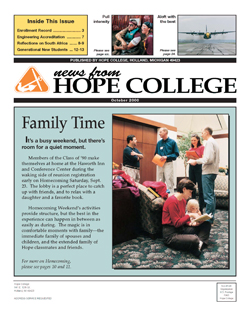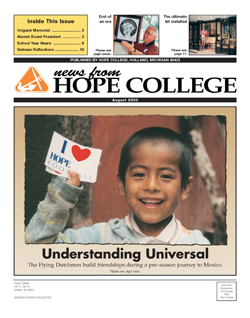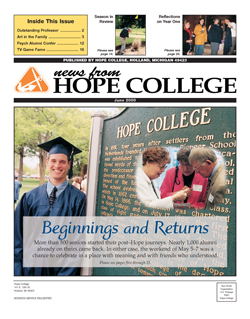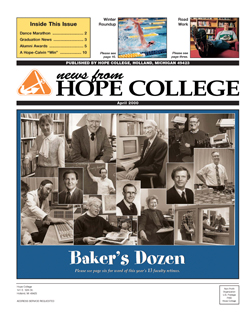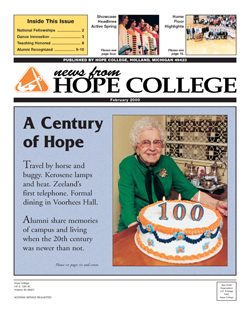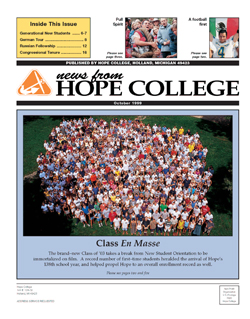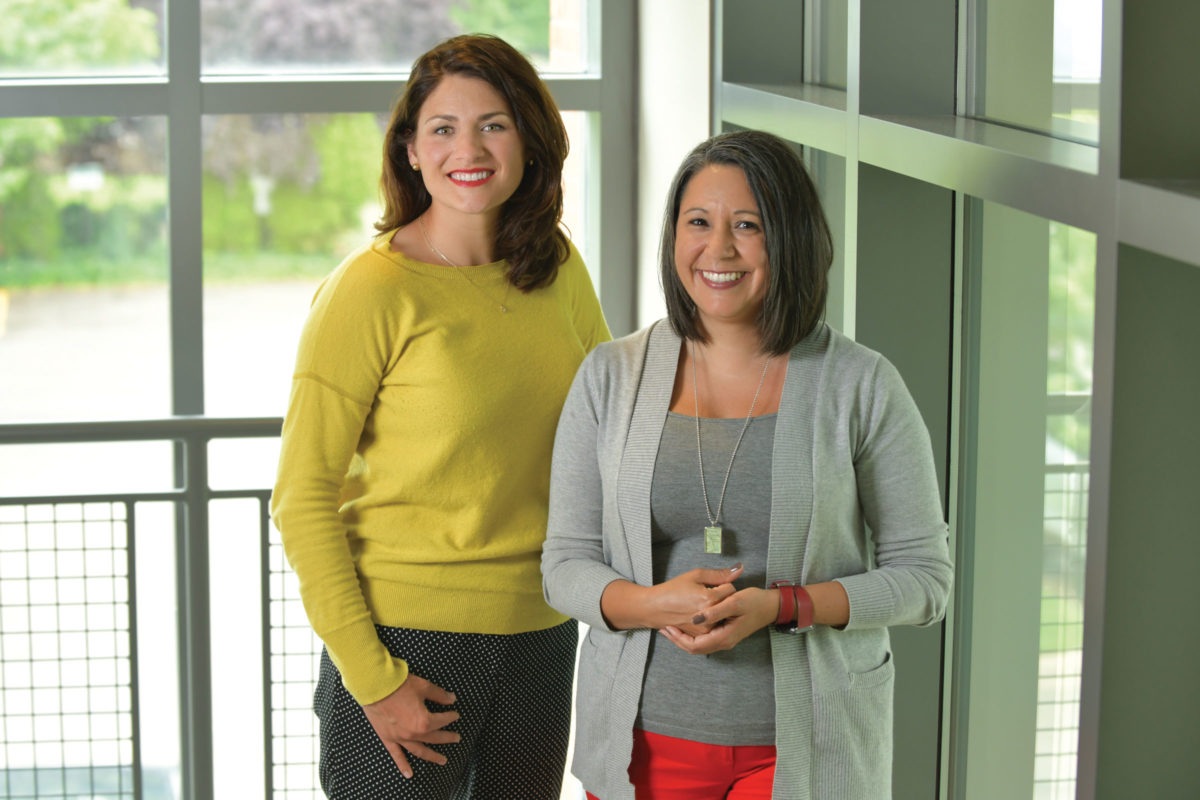Nursing Research on Mother’s Milk
ANITA ESQUERRA-ZWIERS, Ph.D. | Assistant Professor of Nursing
EMILIE Dykstra GORIS, Ph.D. | Assistant Professor of Nursing
Across the board, the research is clear: Breastfeeding is healthy for infants and nursing mothers, has a positive long-term impact on children’s intelligence, and can benefit families and communities. Yet many mothers who decide in advance to breastfeed their babies stop sooner than they’d planned.
“We know that the number one reason that mothers don’t reach their stated breastfeeding goals is that they feel like they don’t have enough milk,” says Dr. Emilie Dykstra Goris. She and her Hope colleague Dr. Anita Esquerra-Zwiers launched research in 2018 to explore the psychological and biomedical components of the issue.
Mothers’ milk supply — or more accurately, a mother’s perception of her milk supply — is the primary focus of what they call the Mother’s Milk for Michigan Infants project. Their modified behavioral study combines survey research with analysis of human milk and DNA to investigate why some women’s bodies are unable to produce enough milk, and the extent to which women who believe that is the case have an accurate sense of their bodies’ physical limits.
“The really unique thing about our study is that DNA component,” says Esquerra-Zwiers.
The mothers who are participating in the study are asked to complete three surveys: one while they are pregnant, another 10 days after giving birth, and the final survey 60 days after the birth. Each participant is asked to provide a saliva sample for DNA testing, plus a sample of her breastmilk. Dykstra Goris and Esquerra-Zwiers are correlating survey results and laboratory data to find out how each woman’s perceptions line up with what lab analysis of the samples reveals about her body chemistry.
“Anita is using her expertise in human milk and feeding, and I’m bringing my knowledge about genetics and genetic analysis,” Dykstra Goris says. “We complement each other pretty well.” They plan to collaborate on other human milk research in the future.
Dykstra Goris received training at the Summer Genetics Institute, part of the National Institute of Nursing Research in the National Institutes of Health. In the past she has researched how the oxytocin receptor gene functions in people who have dementia; this project with Esquerra-Zwiers leverages that knowledge to explore whether that gene may play a role in human milk production, too. Past studies by other researchers indicate that the oxytocin receptor gene may be related to milk production for such animals as cows, water buffalo, swine and mice.
During Hope’s 2018 summer break, Esquerra-Zwiers traveled to the Hartmann Human Lactation Research Group at the University of Western Australia to learn human milk analysis methods and test the 34 milk samples she and Dykstra Goris had collected by that point. Her travel, training and research in Australia were funded by a grant from the International Society for Research in Human Milk and Lactation.
By fall, the researchers had enlisted 82 participants, well on their way to their target sample size of 100 women. Back at Hope, Esquerra-Zwiers got to work analyzing the lab and survey data of the 34 women whose samples she had tested in Australia.
The survey responses indicated that 10 days after they gave birth, 92.5 percent were breastfeeding their babies without supplementing with formula, and nearly all of them perceived that their milk had come in and they had enough milk to satisfy their babies. Analysis of milk samples indicated that some mothers, although they thought they were making enough milk, might discontinue breastfeeding earlier than planned. However, Dykstra Goris and Esquerra-Zwiers found no correlation between the lab data and survey responses.
Their analysis of additional surveys and samples continues, and DNA analysis is still to come. Once the first round of research with 100 mothers is complete, they plan to fine-tune their survey and recruit another group for a second round in 2019 or beyond.
The researchers hope their study will have practical impact in at least three areas: the field of clinical nursing, public health, and mothers who choose to breastfeed.
“This is a nursing project because nurses are in the role of lactation support,” says Esquerra-Zwiers. The outcome of this research could influence the design of clinical interventions to help mothers reach their breastfeeding goals — such as some future device that might allow medical professionals to analyze a small sample of mother’s milk at a woman’s bedside soon after she gives birth.
And if that meant more mothers could breastfeed longer, from a public health standpoint that would be a plus. “The more infants we have receiving more mother’s milk, the better the health impacts for that individual and for the community as a whole — across socioeconomic statuses,” says Esquerra-Zwiers.
The project also could ease the pressure that some mothers feel. Dykstra Goris and Esquerra-Zwiers note that an inability (or even a perceived inability) to breastfeed can trigger guilt and shame. Mothers worry that decisions they make are the driving force in the difficulty they experience in breastfeeding. Knowing that a range of factors are in play might encourage them to reach out for help.
“Don’t beat yourself up over not being able to make enough milk,” says Esquerra-Zwiers. “And more importantly, seek support. Don’t do it alone. There are trained professionals that can help you along the way.”



